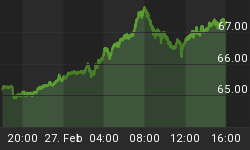Bloomberg Television's Erik Schatzker spoke to Bank of America CEO Brian Moynihan this morning, live from Davos, Switzerland.
Moynihan said that talks to cut employees' pay are "honest and open" and that he doesn't share Morgan Stanley CEO Gorman's opinion that miffed workers should leave. Asked if he would tell complainers to go, Moynihan said, "I wouldn't."
Moynihan on compensation at Bank of America:
"The difficulty for us is we're trying to balance the interest of employees that work very hard to continue our company's progression and in the interest of shareholders who haven't had a good stock price performance. We've done a good job of it."
On giving employees equity awards and whether their sale will have a depressive impact on stock price:
"It's the same equity we give every year at about the same amount. The difference is we get current equity for it and raise the equity. It's a very modest part of our volumes if you think about it. We had 10 1/2 billion shares outstanding so it's a very modest part of that."
On employees who are unhappy with their compensation:
"We don't have that many discussions. We work with people all year long to understand we've got to perform as a company and they've got to perform as an individual. We're with people every step of the way. The discussion is always honest, open and fair.
On whether he'd tell employees to leave if they are unhappy like Morgan Stanley's Gorman did:
"I wouldn't. Our employees know what they're contributed and how they're paid. I just stay away from that."
On what would help relieve financial markets:
"Everybody is at the point, and this not unique to CEOs or to regulators or the policymakers...
We've got to figure out a way to get all this regulation through. At the same time we have to balance that we're in a very low growth environment for these very large economies. And how do you keep that balance so much that we deleverage so much that we slow it down. We talk about United States and Europe--two huge economies that we have to keep moving forward. That dialogue, there's nobody has an uncommon interest, it's just a question of the details of how you get there."
On what Bank of America can do to help Europe move forward:
"We do a lot of things...Basically helping people's thoughts and execution both on the financial institution side on the corporate side and ultimately on the policy side."
On expectations for a "reasonably good" year for BofA's investment bank:
"From 2010 to 2011 we were down, and the first half of 2011 was pretty good...from an investment banking standpoint, we are seeing number two in the world. We continue to progress forward. The revenues range between $1 billion, $1.1-$1.5 billion and that's been pretty constant. And we're seeing the deal flow for a lack of a better term in the pipeline come through. From a trading side, you've had serious disruptions in the markets in the last part of the past year...it's behind us in a sense that it's a new year and the businesses rebounded and the stability and the spreads are coming in. We'll see if that holds but so far so good."
On when BofA's mortgage business will become profitable:
"If you look in our results, you can see there's a tale of two pieces. There's a piece of collecting--we have 45,000 people. We've modified a million loans now. We modified 60,000 last quarter or something like that. So that is a big drag on our P&L and you can see that inventory of borrowers who are moving through. We've seen that move. What that means is that the real estate market is healing. The other business, we made a little bit of money. It's just overwhelmed by the piece that we're working on. The best thing about the business is from a standpoint of the American consumer and American health is the delinquencies continue to come down. It is important because we're getting the other side of the river, it's got a lot of work ahead of it, but we're getting there.
On a normalized earnings picture for BofA:
"There's two or three steps to it. We have to get the cost structure down. The interest rate environment is difficult for a big core funded retail middle market bank in terms of what we make and you can see that. And yesterday, the Fed said that's extending. So we have to get interest rates more constructive. And then we have to get the bad mortgage stuff behind us and that's costing us a lot of money. So you add that all up, we could move forward. And the stair steps are there. 2012 is about a year of getting those stair steps climbing forward.
On whether he feels BofA needs to consolidate:
I don't think we need to buy anything. We have three groups of customers. We're number two in investment banking. We're two or three in trading. We're number one in consumer pieces. We're the top wealth management business in the in the world. We don't need anything. We need to continue to show our customers and clients what they can achieve with this powerful franchise. And secondly, we have the opportunity now after six acquisitions in six years with 200,000 people coming in to actually sit and take this opportunity and operate it well. That's what gets us the income streams that shareholders need.















